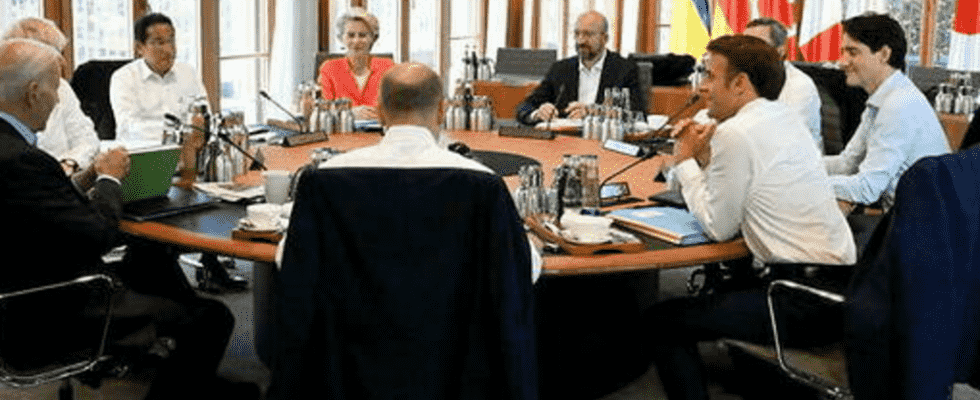They had been talking about it for months. This time, the G7 countries have reached an agreement in principle to cap the price of Russian oil. The Group of Seven wants to implement this project “ urgently but there are still a lot of question marks.
The G7 has not yet set the amount of this ceiling that he intends to establish. In their joint statement, the G7 countries explain that the price will be based on a series of technical data and will be decided by the entire coalition before its implementation. These future prices would be “ publicly communicated ” in good time.
The idea is in any case that this amount be lower than the current selling price of Russian oil, but it would still be higher than the cost of production. Objective: that Moscow still has an interest in selling its oil and that he does not stop his deliveries.
It also remains to be seen who will agree to join this “ broad coalition » that the G7 calls for. The stakes are high: the price cap will only work if all major buying countries participate. The G7 will have to convince India and China in particular.
However, Moscow has already warned. Russia would refuse to deliver oil to companies and countries that impose these restrictions. The Kremlin also warns that this measure “ would destabilize » the black gold market. There is indeed a risk of causing a surge in world prices.
In addition, the terms of the mechanism that would allow this cap remain unclear. Listen to the analysis of Philippe Charlez, from the SAPIENS institute.
We have no information on this mechanism, it seems completely inapplicable to me, especially since not everyone will be involved…
Philippe Charlez from the SAPIENS institute
Ursula von der Leyen, the President of the European Commission, wants to put a cap on the price of gas delivered by Russia.
